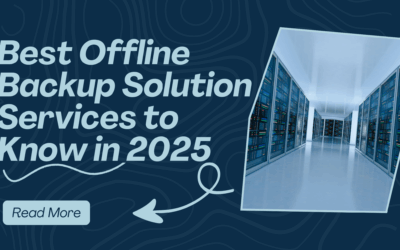We are in an era where your business does not need to rent an office floor to build a kingdom; with the right team at your disposal, you can run faster and smarter. Scaling your business is no longer a dream; it is a strategic approach that includes Remote IT Support for small business.
In this guide, we will take a look at scalable IT solutions for startups & businesses, which will help you in choosing the proper remote support for your business. In case you’re looking for remote IT support in the U.S., Computero should be your go-to choice.
What is Remote IT Support?
In layman’s terms, remote IT support is when a tech team solves your technical issues over the Internet. This includes fixing bugs, updating software, and securing networks.
Necessary Transition:
In the past, you would have hired a local IT firm to solve your technical issues. But in 2025, global access to top-tier talent, 24×7 service availability, and low operational costs will make Managed IT Services for companies an ideal choice.
Why Remote IT Support Makes Sense?
Remote IT Support makes business sense in the following ways:
- Tear Your Overhead: There is no need for office space or local hires. Remote support means reduced salaries and setup costs, which is ideal for startups and small businesses.
- On-Service: Remote IT support teams work 24×7 around the clock. Have a technical problem at midnight? The technician will be available to fix it.
- Speedy Solution: Remote technicians can access your system immediately. There are no delays, just a fast solution.
Remote IT Support for Small Businesses
Small businesses lack limited resources. Cloud-Based IT Solutions gives them a chance to back themselves.
- Affordable Knowledge: You gain access to the whole IT team for a portion of the cost of hiring in-house.
- Rapid Scaling: Do you need to onboard 50 new employees? Your remote IT support can handle it without a hitch.
Why is Scalability Vital for Remote IT Support?
With growing companies, either by hiring additional staff or adding more devices, the IT infrastructure can come under tremendous pressure. A scalable remote IT infrastructure can alleviate these peaks and lows, enabling IT staff to provide good support, regardless of business scale.
Scalability is also about being flexible, not merely keeping up with expansion. Businesses that have scalable IT infrastructures can easily adjust resources as needed, whether they’re managing seasonal peaks or repairing unexpected issues. Flexibility keeps things running smoothly and avoids frustration due to performance slowdowns.
Want to know another bumper benefit? Scalability helps businesses future-proof their IT infrastructure. As the number of remote workers increases, having a system that can grow your firm ensures that you’re ready for anything. Without trustworthy Managed IT Services for Companies they risk falling behind with constant headaches caused by outdated systems that cannot handle the load.
Benefits of Cloud-Based IT Solutions
There are various benefits of cloud-based IT solutions. Some of them are listed below:
- Adapt to Growth: Scalable solutions allow businesses to expand their IT support as they grow. Whether it’s onboarding new employees or adopting new tools, make sure you can adjust your resources without any issues.
- Cost Efficiency: By scaling resources up or down based on need, businesses avoid overspending on unused capacity. Pay-as-you-go methods and flexible plans with scalable solutions make it easier to align IT costs with business requirements.
- Improved Performance: Scalable IT support tools can handle spikes in demand, ensuring smooth operations during peak hours. This eliminates the performance bracket and minimizes downtime, keeping employees and customers satisfied.
- Low Risk: An Outdated IT support system can struggle with the increased risk of a crash. Scalable solutions mitigate the risk by providing a robust infrastructure capable of supporting higher workloads.
- Simplified Resource Management: With scalable tools in your bag, the IT team can manage different devices and users from a streamlined platform. This will reduce workflows, making it easier to maintain productivity as the firm grows.
Factors to Consider While Judging Scalability in Remote Solutions
- Multi-Device Management: Make sure that the solution has ample range of devices such as IOT. The ability to manage multiple devices simultaneously and save time and reduce complexity leads to growth of the business.
- Cloud-Based Infrastructure: Cloud infrastructure provides businesses with much-needed flexibility to meet evolving business demands. It allows you to scale resources easily, eliminate hardware limitations, and enable remote access.
- Customizable User Controls: A scalable tool will offer customizable user roles and permissions, allowing your IT team to assign the correct access levels as your workplace grows.
- Security Features: When security risks increase, you should find a solution with advanced features such as end-to-end encryption and two-factor authentication in order to protect sensitive data.
Key Takeaways
A scalable business does not invest money into oblivion or overstress its employees. Through remote IT support for small businesses, managed IT solutions for businesses, and cloud IT solutions, you can do more and better for less. Whether a start-up or an old-timer, business expansion of the future is about remote, scalable, and secure IT strategies.




